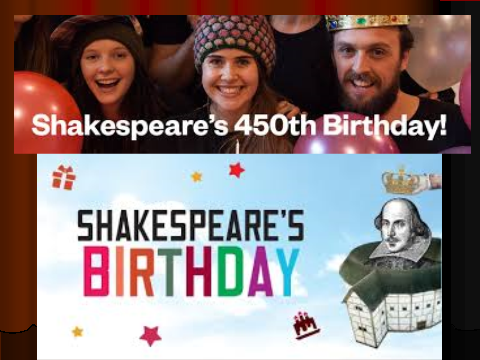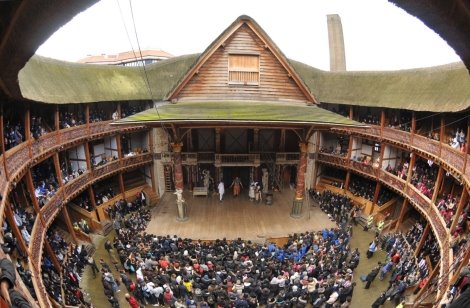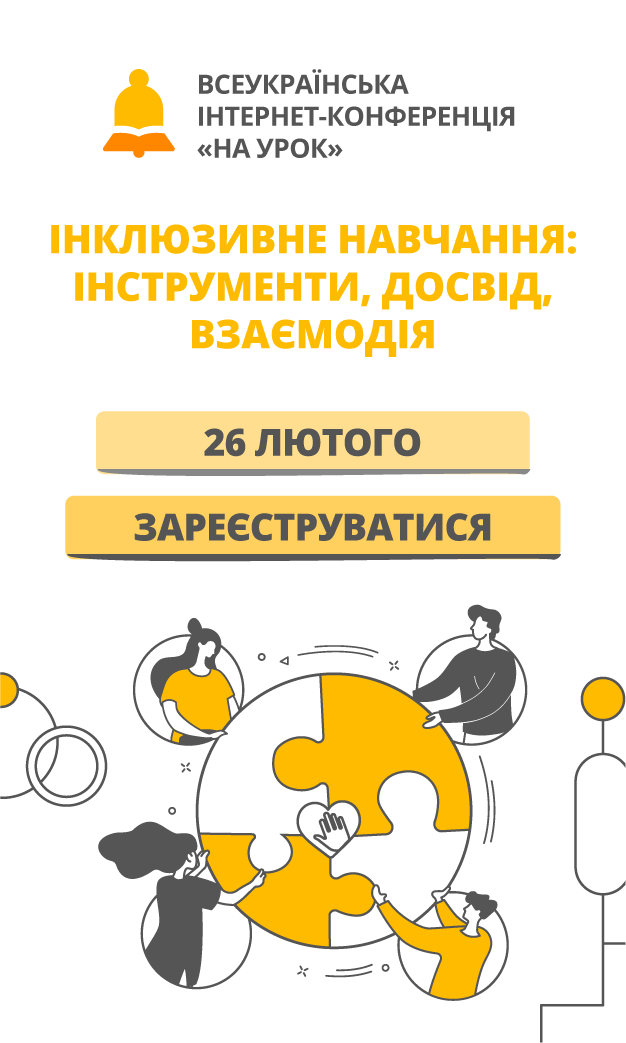Конспект уроку "William Shakespeare".
William Shakespeare.
Objectives: - to improve students´ speaking skills through methods of interactive activities; - to develop students´ skills in listening for gist and details; - to practise using the structure of Used to do ; - to broaden students´ outlook.
| Level:intermediate |
Olena Linchuk,
a teacher of English,
secondary school #7,
Dubno,
Rivne region
William Shakespeare. Level: Pre- Intermediate
Objectives:
- to improve students' speaking skills through methods of interactive activities;
- to develop students' skills in listening for gist and details;
- to practise using the structure of Used to do ;
- to broaden students' outlook.
Equipment: a computer, the Internet recourses, a projector, Power Point Presentations, photocopies one set of A and B worksheets per pair of students, photocopies the activity for each student (© Macmillan Publishers Ltd 2006 Downloaded from the Business and ESP section in www.onestopenglish.com
Shakespeare)
Procedure.
I. Introduction
T: Hello to everyone! You are learning English so you`re suppose to know more about English-speaking countries and their famous people. Britain is a country that has produced a great number of literary people. You have already learned about some outstanding British writers and poets who made their country famous and contributed much in British literature. This year is the 450th anniversary of William Shakespeare's birth. His birthday, 23 April, falls on St George’s Day, the English national holiday. This year, there will be numerous events all around the world celebrating the Bard. I believe we should devote our lesson to William Shakespeare.
II. Brainstorm
T: Have you ever read one of his plays?
Which play(s) did you read? When?
Have you ever seen a film about Shakespeare or his plays? Which one?
(Students’ answers.)
T: Today we’ll make a journey into the world of one of the greatest British writers - William Shakespeare.
III. Main Part.
1. Watching presentation.

2. Group work.
T: So, it's logical to suppose that we are going to sustain the conversation. To manage this task I'd like you to read through your worksheets and then complete the eight questions you can ask to find the missing information.
Worksheet A for Group1
William Shakespeare was born on (1) _, _in (2) Stratford-upon-Avon. When he was (3) _he went to the local grammar school for boys. He left school when he was about (4) 14. He was only (5)_when he met (6) Ann Hathaway and they got married in (7)_ , _. Their first daughter, (8) Susanna, was born (9)_months later. In (10) 1592 Shakespeare was living in (11) _and had become famous. At this time he was writing and acting for the Lord Chamberlain’s Men at the Globe Theatre. Shakespeare became very successful and in (12) 1599 he bought the (13) __ __. During his life he wrote at least (14) 37 plays including Romeo and Juliet, Hamlet and Twelfth Night. He died on his birthday in (15)_at the age of (16) 52.
Questions:
(1) When__?
(3) How old__?
(5) How old__?
(7) When__?
(9) How many_?
(11) Where__?
(13) What__?
(15) When__?
Worksheet B for Group2
William Shakespeare was born on (1) 23 April, 1564 in (2) _. When he was (3) seven he went to the local grammar school for boys. He left school when he was about (4)_. He was only (5) 18 when he met (6) _ and they got married in (7) November 1582. Their first daughter, (8) _, was born (9) eight months later. In (10) Shakespeare was living in (11) London and had become famous. At this time he was writing and acting for the Lord Chamberlain’s Men at the Globe Theatre. Shakespeare became very successful and in (12) _he bought the (13) Globe Theatre. During his life he wrote at least (14) _plays including Romeo and Juliet, Hamlet and Twelfth Night. He died on his birthday in (15) 1616 at the age of (16) .
Questions
(2) Where_?
(4) How old_?
(6) Who_?
(8) What_?
(10) When_?
(12) When_?
(14) How many_?
(16) How old_?
(The teacher monitors and checks students’ questions).
2. Oral practice (Pair work).
T: Well done. Now, I’d like students from group 1 to pair up with ones from group 2. Each of you has the text with some missing information in it. Take it in turns to ask and answer the questions using your worksheets. Make sure not to show it to your partner.
3. Listening
T: I’d like to suggest you some information about the Globe theatre. While listening sort out the facts about the Globe theatre in Shakespeare’s time and the information of the Globe theatre today.
1. Mostly an intellectual entertainment.
2. A popular entertainment
3. All kind of audience: rich and poor spectators.
4. No poor or homeless spectators
5. Performances took place in daylight, in the summer.
6. The performance usually takes place in the evening.
7. There are lighting and special effects.
8. There was no electricity.
9. There were no microphones, no computers.
10. There are microphones and computers.
11. Drinking is not allowed in the theatre.
12. People were allowed to drink.
13. People could eat.
14. You are not allowed to eat during the performance.
15. Men, women, boys and girls can be actors or actresses.
16. Only men and boys were allowed to play.
17. Shakespeare’s theatre was located near the Thames too.
18. The present Globe is situated near the Thames river in London.
19. It was reconstructed in 1996.
20. It was opened in 1599

The Globe theatre
In the Elizabethan period, the theatre was a very popular entertainment. The Globe theatre was built on the South Bank near the Thames in London in 1599. Here many of Shakespeare’s plays were performed for the first time. Shakespeare not only wrote for the company but often took small parts in the plays. The Globe was roughly circular in shape. It consisted of a covered stage for actors, covered galleries for wealthy spectators and an uncovered pit for the poor audience. The pit or yard in the middle of the theatre was open to the sky. The stage was a wooden platform raised a few feet from the ground. The poorer people stood in the central pit. Only the richer ones could sit in the roofed galleries. The performance only took place during the summer and in the daylight because there was no electricity to light the stage. There was no performance in case of bad weather. Women were not allowed on stage. Young men, boys played the role of women. There were no microphones either, and as the spectators shouted ate and drank, it became very noisy. The actors had to repeat their lines in different places on the stage to be heard by all the audience. You can now visit the Globe in London. It has been rebuilt exactly as it was in Shakespeare’s time.
Key: The theatre today: 1,4, 6, 7, 10, 11, 14, 15, 18, 19.
The theatre in Shakespeare’s time: 2, 3, 5, 8, 9, 12, 13, 16, 17, 20.
4. Focus on Grammar.
T: Let’s get acquainted with the structure used to. We use the expression used to do to talk about the past only. We say used to to express a state that existed in the past but doesn't exist now.
Structure of Used to do. It is used only in the Past Simple.
|
|
subject |
auxiliary |
not |
main verb |
infinitive |
|
+ |
I |
|
|
used |
to do. |
|
- |
I |
did |
not |
use |
to do. |
|
? |
Did |
you |
|
use |
to do? |
T: The general rule is when there is did or didn't in the sentence, we say use to (without d) when there is no did or didn't in the sentence, we say used to (with d). The question form is ‘Did you use to…?'. Now you are going to make up questions and negative sentence using Used to.
Ex : The tickets didn’t use to be expensive. Did they use to stand in the pit?
1. In London, in the 17th century the South Bank used to be the London’s theatre
district, today the theatres are situated in the Strand on the North Bank near
Covent Garden.
2. The theatre used to be a very popular entertainment.
3. It didn’t use to be expensive at all.
4. The poor audience used to stand in the crowded pit whereas the richer spectators used to sit in the covered galleries.
5. Today we can meet great actors and actresses in London but in Elizabethan times there were only famous male actors. Women were not allowed on stage that’s why young men used to play women’s role: Juliet, the nurse, the mother…
III. Summing up.
1. Reflection
|
During today’s lesson I have
|
got acquainted with … |
|
found out… |
|
|
learnt… |
|
|
remembered… |
2. Home assignment:
T: Prepare a report about William Shakespeare.
During the lesson you worked hard; your answers were quick and correct. You did your best to maintain the conversations. I have really enjoyed working with you. You deserve high marks. See you next lesson.


про публікацію авторської розробки
Додати розробку
